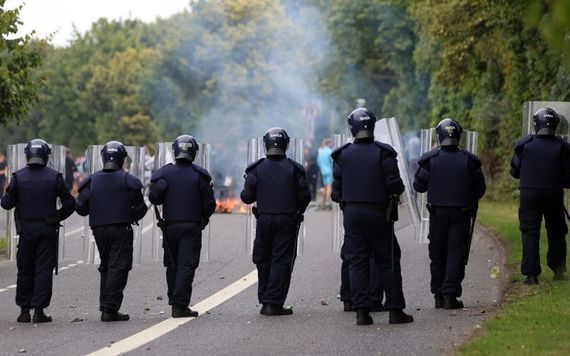The survey by election watchdog the Electoral Commission revealed a high prevalence of anti-immigration conspiracy theorist views among voters, including the lie that the establishment was "replacing Irish people with more obedient immigrants".
One expert has said that there has been an increase in "support for conspiratorial" views since the pandemic, with the most prominent conspiracy theories in Ireland having migration "at their core" since then.
Ciarán O’Connor, a senior analyst at the Institute for Strategic Dialogue, which aims to tackle the spread of disinformation, said that social media platforms had been allowed to "run wild online’ to keep audiences on their platform, by pushing people "down a rabbit hole".
The Electoral Commission’s research was carried out in two parts by polling firm Red C, with over 3,000 people who voted in the local and European elections in June in an online poll, as well as during face-to-face interviews with 900 people who voted in the Limerick mayoral election.
It found that more than a fifth of the electorate expressed belief in a series of conspiracy theories, including that "elected officials want more immigration to bring in obedient voters who will vote for them" and ‘the establishment is replacing white Irish people with non-white immigrants’ – both supported by 22% of voters. The survey also found that 28% of people believe that "groups of scientists manipulate, fabricate or suppress evidence in order to deceive the public".
Mr O’Connor said that the study shows support for "the great replacement theory" which has been espoused by the perpetrators of several mass shootings.
He said: "It [the great replacement theory] has a very notable past, it was the main conspiracy theory behind the mosque shootings in Christchurch (in New Zealand) in 2019 and it inspired other terrorist attacks."
The conspiracy states that there is a deliberate effort to replace native-born populations in Western countries with immigrants to achieve political or cultural changes. Mr O’Connor said that people who are drawn to conspiracy theories have a psychological need that isn’t being met, such as uncertainty in a time of crisis.
The pandemic is the best example of that, what happened then was a lot of people became exposed and more receptive to conspiracy theories in general. It started with Covid and moved on to other topics now," he said.
While social media firms have rules around content that could lead to incitement to hatred, Mr O’Connor said there is a major "enforcement gap".
"The big social media platforms have detailed content moderation guidelines around incitement to hatred, but what we see so often in our research is these policies are not always implemented," he said.
He said that the worrying aspect of the growing acceptance of the conspiracy theory is the link with violent attacks on minorities.
"The concerning thing is that when that content described migrants as invaders or puts targets on their backs can be linked to violence," he said.

Irish police confront protesters at a scene in north Dublin city where petrol bombs were thrown at an anti-migrant protest in early July 2024.
The survey showed that voters for the newly established Independent Ireland (II) party, set up by Independent TDs Michael Collins, and Michael Fitzmaurice, were most likely to believe the conspiracy theories at 47%. This was followed by Aontú voters (35%), Independent candidate voters (32%), Sinn Féin voters (27%), Fianna Fail voters (17%), Fine Gael voters (13%), Labour voters (10%), Green Party voters (9%), People Before Profit voters (7%) and Social Democrats voters (6%).
Fianna Fáil’s Senator Timmy Dooley told the Irish Daily Mail that some TDs were fuelling conspiracy theories in their Dáil contributions. "Some actors in the Dáil who give voice to it – people will say 'X or Y are saying'," he said.
Mr Dooley said that Oireachtas members have a responsibility to tell the truth and question things they know are untrue.
Sinn Féin communications spokesman Martin Kenny told us that he has been "surprised" at the level of increase in conspiracy theories.
"That’s the change that has happened in the past 12 to 18 months, serious people that you think would have cop on believing in this," he said.
Mr Kenny added that there is a "big problem" with social media companies "feeding the conspiratorial nonsense".
* This article was originally published on Extra.ie.




Comments